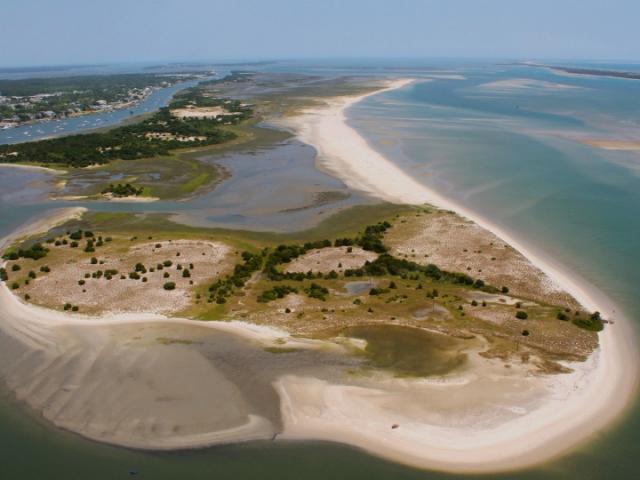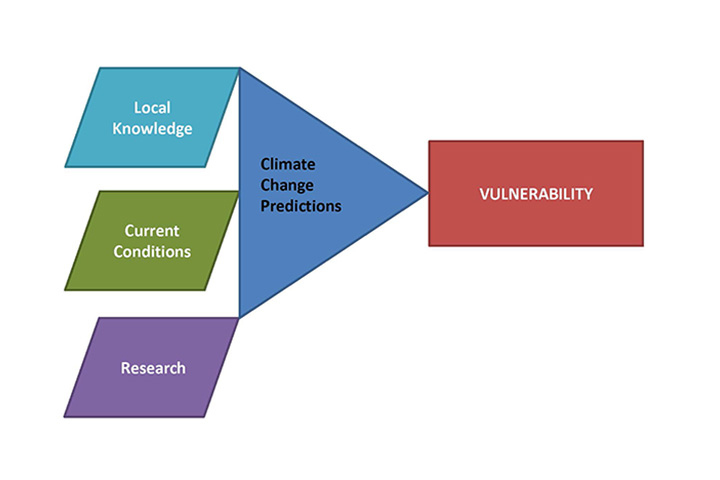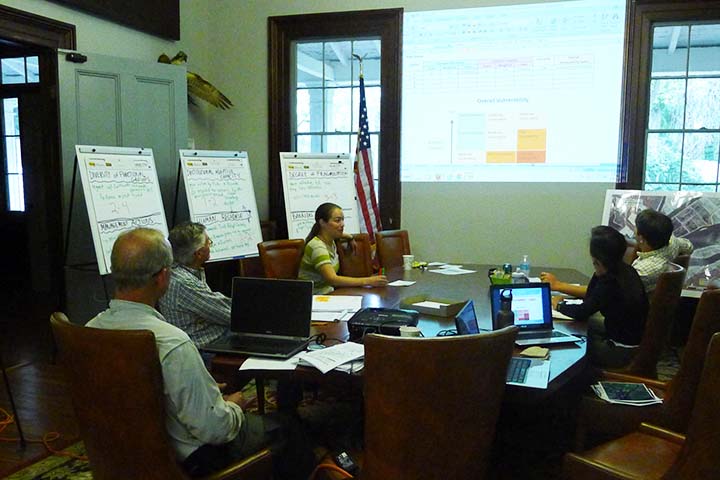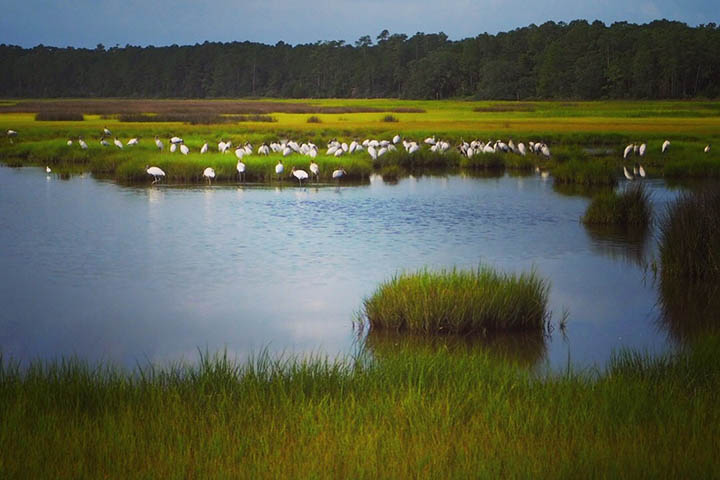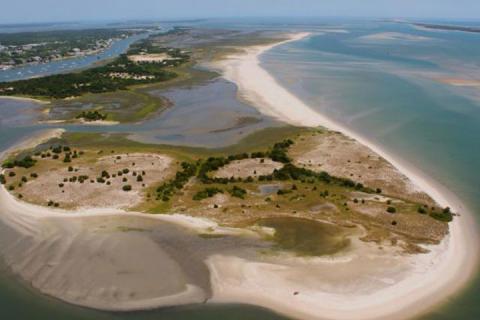
Climate change is having an impact on salt marshes in the southeastern United States through sea level rise, increases in air and water temperature, changes in precipitation patterns, and an increase in storm event intensity. However, the degree and intensity of these impacts vary from marsh to marsh, depending on local environmental conditions. Understanding this local variability is critical when making management decisions. National Estuarine Research Reserves in North and South Carolina are working to improve local understanding of climate change effects on southeastern salt marshes. To provide decision makers with the information and tools they need to address these vulnerabilities, the 2013 collaborative project Assessing Habitat Vulnerability in a Time of Change developed the Climate Change Vulnerability Assessment Tool for Coastal Habitats, or CCVATCH. Created to help managers better understand a habitat's specific vulnerabilities to climate change, this decision support tool incorporates existing information on climate change impacts with knowledge of local conditions to help users develop vulnerability scores for specific areas.
In this project, North Carolina Reserve staff members were fully trained in the CCVATCH assessment process by their colleagues from the North Inlet-Winyah Bay Reserve. The project team led habitat vulnerability assessments for seven estuaries in North and South Carolina and summarized regional findings to help managers in the Southeast improve salt marsh resilience. The project identified relevant resources and existing research needs, and developed guidance and outreach products available at the CCVATCH website.
